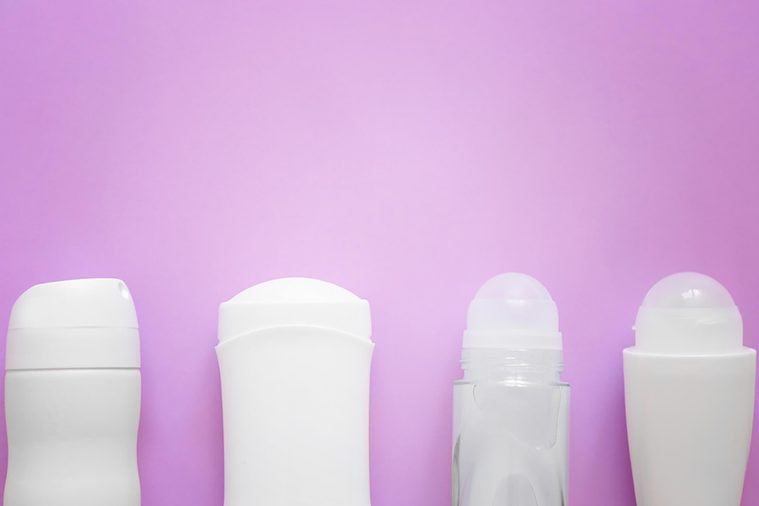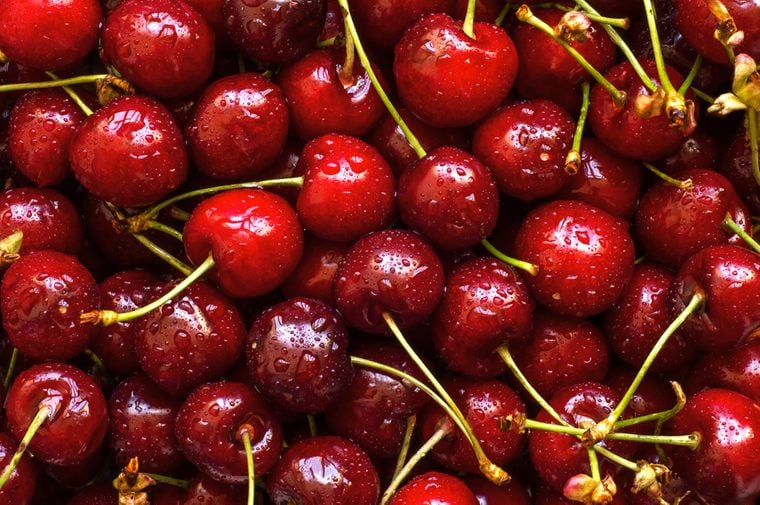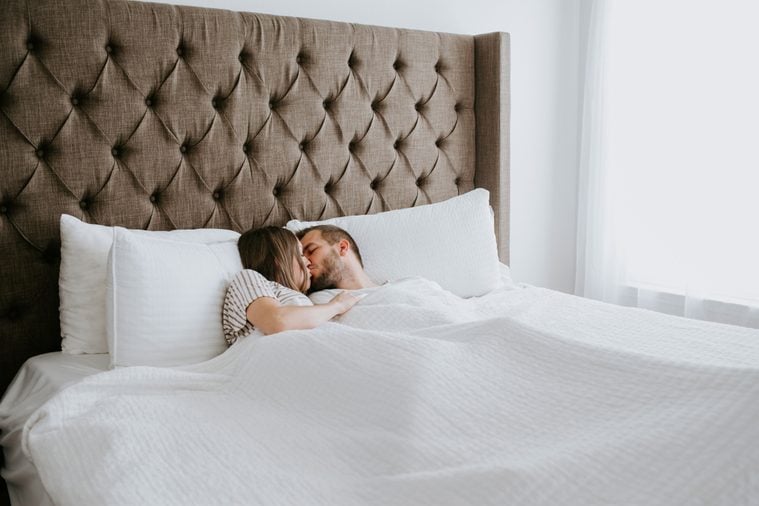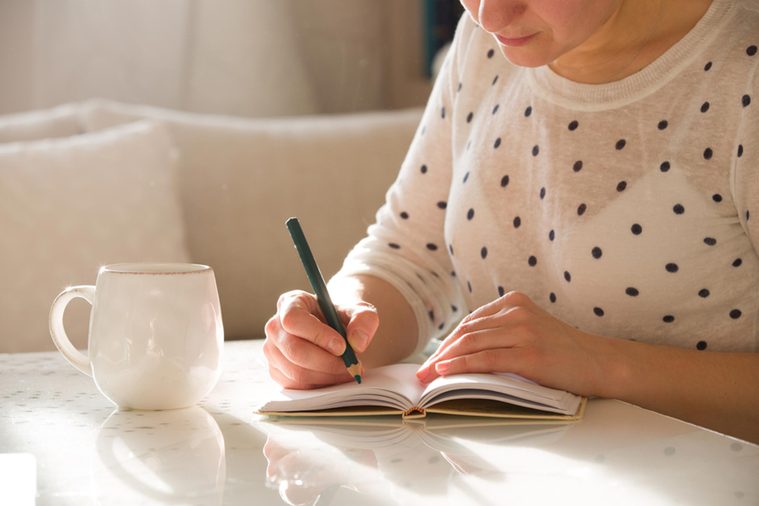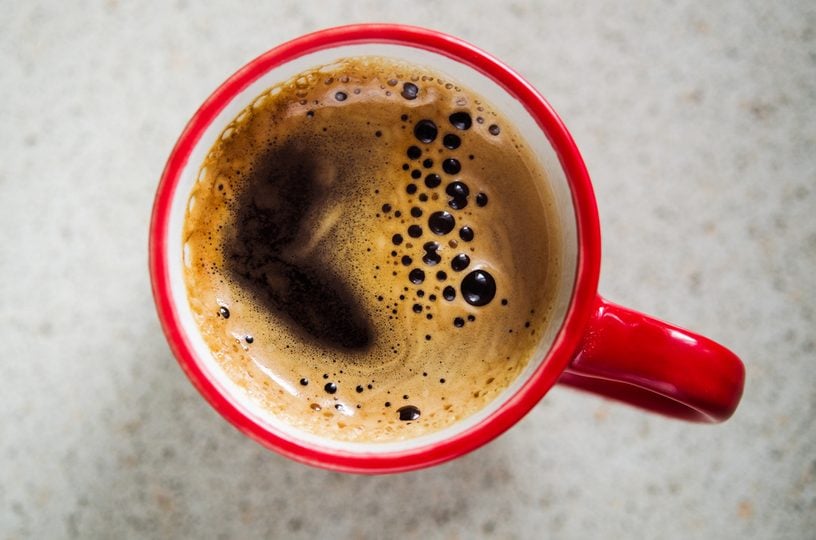
Don't Drink Coffee Before a Blood Pressure Test
If you're scheduled for a blood pressure test, it's best to avoid coffee and other caffeinated beverages beforehand. Caffeine can temporarily raise your blood pressure, which might lead to inaccurate results. "Using coffee or other caffeine such as energy drinks or colas within an hour of having your blood pressure measured can make the number artificially higher," says James Dewar, MD, vice chairman of family medicine at the University of Pittsburgh Medical Center (UPMC). This rule also applies to tobacco products and over-the-counter decongestant medications.
Don't Eat a High-Fat Meal Before Getting Blood Drawn
Eating a high-fat meal before a blood workup can affect the accuracy of your test results. "If you wouldn't normally have a high-fat meal, then don't do it, so your physician can get an accurate picture of your health," says Deepa Iyengar, MD, associate professor of family and community medicine at McGovern Medical School at UTHealth and an attending physician at Memorial Hermann-Texas Medical Center. Large meals can skew test results, and in some cases, you may need to fast entirely. "If your blood work will include a measurement of cholesterol or other fats, it is best to avoid any calories for eight to ten hours before the test is drawn," says Dr. Dewar. "Your blood sugar and certain fats in the blood called triglycerides can be increased for a bit after you eat."
Do Drink Lots of Water Before a Physical
Staying well-hydrated before a physical is beneficial. "Being well hydrated at the time of a physical will make your pulse and blood pressure at their best," Dr. Dewar says. Dehydration can cause artificial abnormalities in testing, which could confuse the results. It's always a good idea to drink plenty of water before any medical appointment.
Do Eat as You Normally Would Before a Checkup
You don't need to change your eating habits before an annual checkup. "Your providers would like you to be honest and upfront about your lifestyle and diet so they can have an accurate history of your health and provide you with the best possible care," says Gregory John Galbreath, MD, a PIH Health physician in Whittier, CA. A few days of healthier eating won't significantly impact your cholesterol or blood sugar levels. Changes occur over the long term, so it's better to maintain a healthy diet consistently.
Don't Take Cold Medicine Before a Sick Visit (If You Can)
When you're sick, your doctor may want to evaluate your symptoms without the effects of over-the-counter medications. "If possible, don't take anything so your doctor can see any abnormal findings and assess your condition," says Dr. Iyengar. Some medications may raise blood pressure, and your physician would not know if the medication or the illness could be the cause. If you're in pain, it's okay to take medication, but be ready to describe your symptoms and let the doctor know what you've taken.
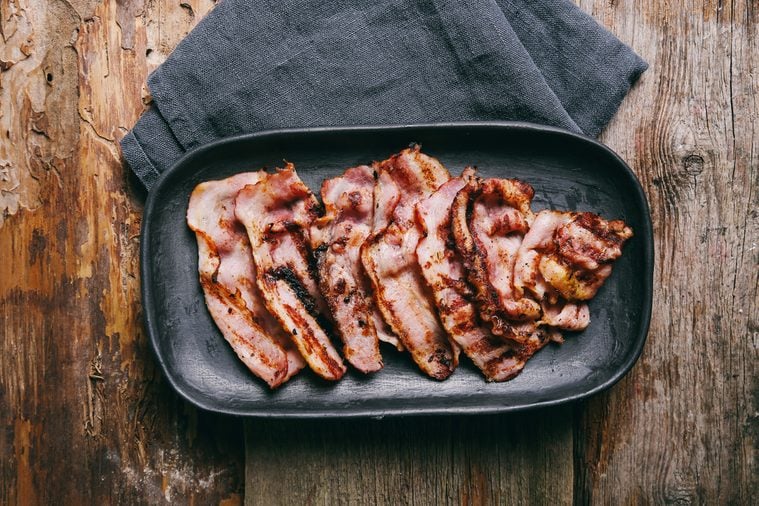
Don't Get a Mani-Pedi Before the Dermatologist
Dermatologists examine your entire body, including your nails. "Avoid wearing nail polish or acrylic nails," says Sarina Elmariah, MD, PhD, a dermatologist at Massachusetts General Hospital in Boston. Subtle clues in your nails can indicate bigger health problems, like anemia, diabetes, and even heart ailments. Plus, bare nails make it easy to spot fungus. Also, skip the cover-up and eye shadow, so your doctor can easily spot facial skin problems.
Don't Drink Alcohol Before a Cholesterol Test
Avoiding alcohol before a cholesterol test is important because it can affect your triglyceride levels. "The precaution to abstain 24 hours prior to a cholesterol test is based on the potential increase in triglycerides that could result soon after drinking alcohol," says Joon Sup Lee, MD, chief of cardiology at the University of Pittsburgh School of Medicine and co-director of the UPMC Heart and Vascular Institute. You should also avoid sweets, high-fat foods, and generally overeating before the test. However, regularly consuming one or two alcoholic drinks per day can actually have a mild beneficial effect on cholesterol levels.
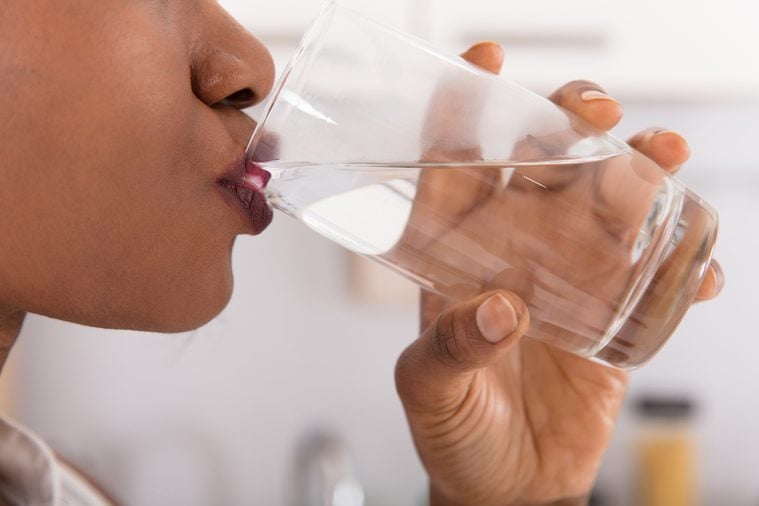
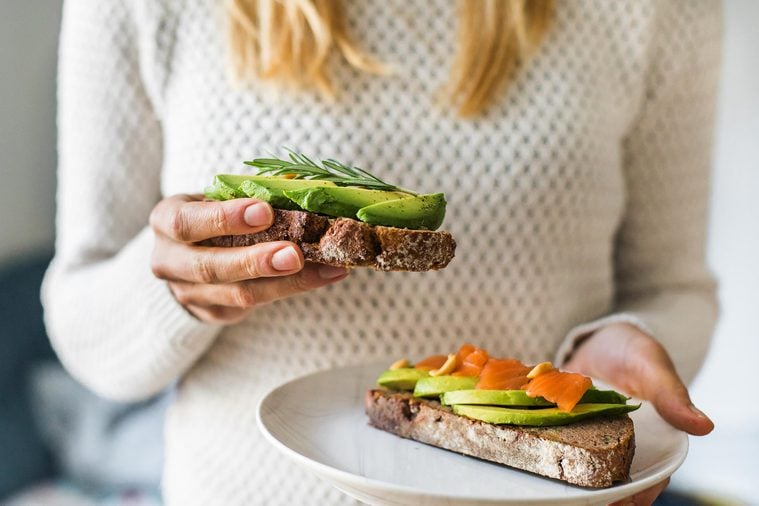
Don't Have Caffeine Before Some Stress Tests
Caffeine can interfere with stress tests that involve pharmacological agents. "Caffeine counteracts the medicine—adenosine or regadenosine—used to simulate stress in the 'chemical' stress test," says Dr. Lee.
Don't Get Too Thirsty Before a Urine Test
If you need to go for a urine test, don't get dehydrated before your appointment. "Avoid episodes of major dehydration that can significantly alter a urinalysis," says Benjamin Davies, MD, chief of urology at the UPMC Shadyside/Hillman Cancer Center. Avoid exercise that's not in your normal daily routine, as it can lead to dehydration.
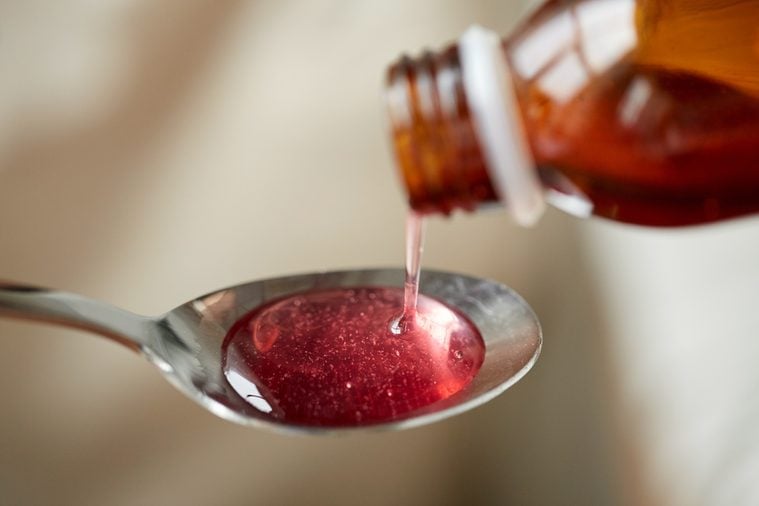
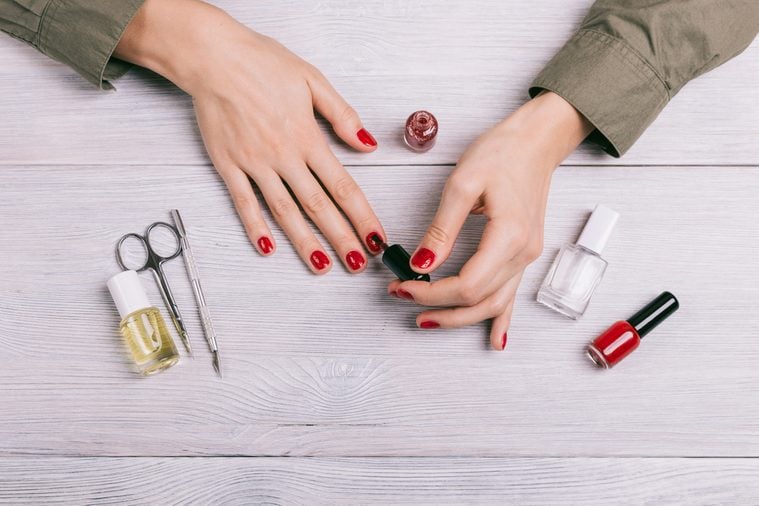
Don't Cancel Your Gyno If You Have Your Period
Having your period doesn't mean you should cancel your gynecological appointment. "The liquid Pap smear tests that are the standard now can be done even when a woman is menstruating, so no need to reschedule," says Elizabeth Roth, MD, an ob-gyn at Massachusetts General Hospital. The only exception is if you're going in for a specific concern, like funky discharge or a lesion, your period might obscure the exam. But even that is not an absolute, as vaginal cultures can still be performed.
Don't Use Deodorant Before a Mammogram
Mammography advises women to skip deodorant/antiperspirant or powders on the day of the mammogram. "Many deodorants and powders contain aluminum, which on mammography looks similar to breast calcifications and could be read as a false positive," Dr. Roth says. Just shower beforehand and it won't be that bad.
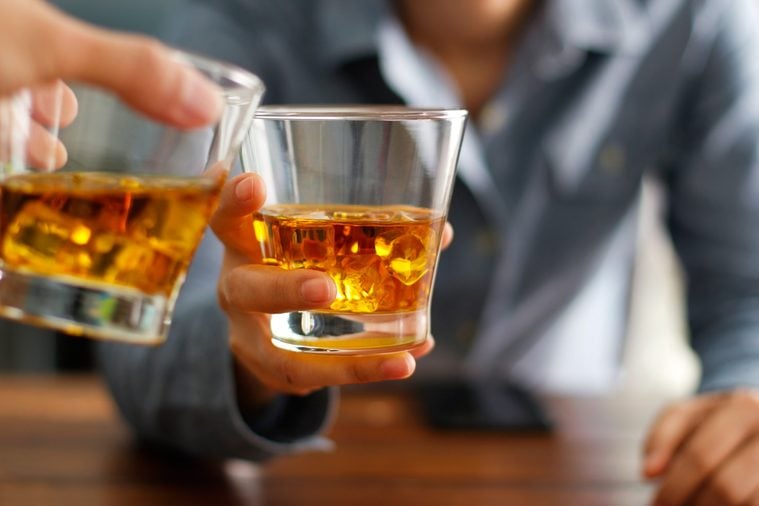
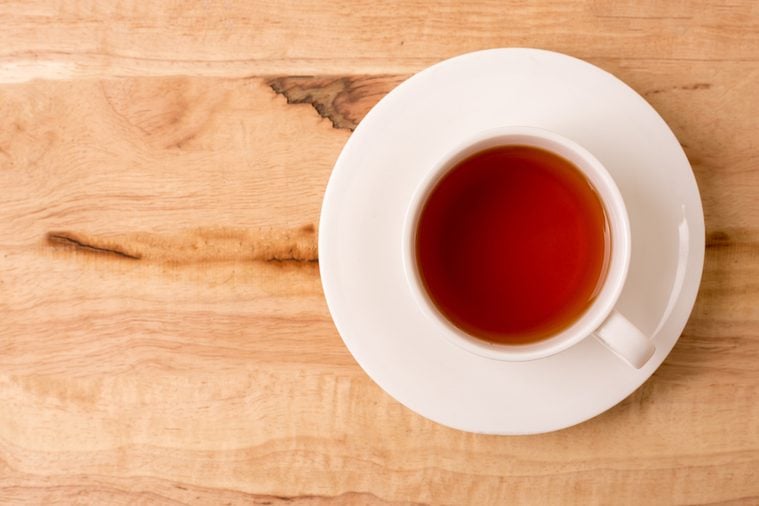
Don't Eat Red Food Before a Colonoscopy
Red or purple food can color your colon and mask the lining, which could affect the outcome of the study. "We ask that these are not purple or red in color because they will mask the lining of the colon and could then affect the outcome of the study," says Randall Brand, MD, a gastroenterologist at UPMC. Iron supplements can also have the same effect and may cause constipation, making it difficult for the pre-colonoscopy laxatives to clean out the colon.
Do Go Ahead and Have Sex Before the Gyno or Urologist
Doctors say it's okay to have sex before your visit, even though you may think it's a no-no. "Your doctor's not going to yell at you for having sex—it's totally fine," Dr. Minkin says. For men, normal sexual activity is fine, and there are no significant abnormalities associated with sexual relations.
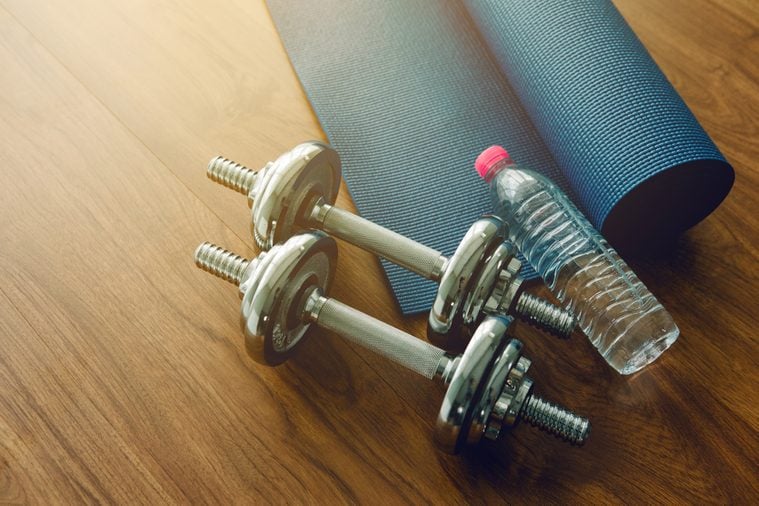
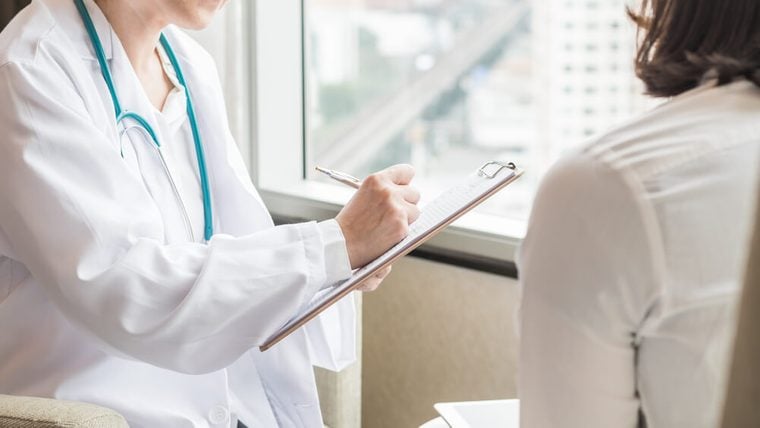
Do Write Down Your Questions Beforehand
No matter what kind of appointment you have, it's helpful to write down the things you want to talk about beforehand. That way, you're less likely to forget or lose your nerve. "It's helpful if you come in with your list of questions so you're not like, 'Oh, I meant to ask this, I meant to ask that but I was too nervous,'" Dr. Minkin says. Other than that, the only other thing you should probably do is shower! Use these tips to get the most out of your next doctor visit.
